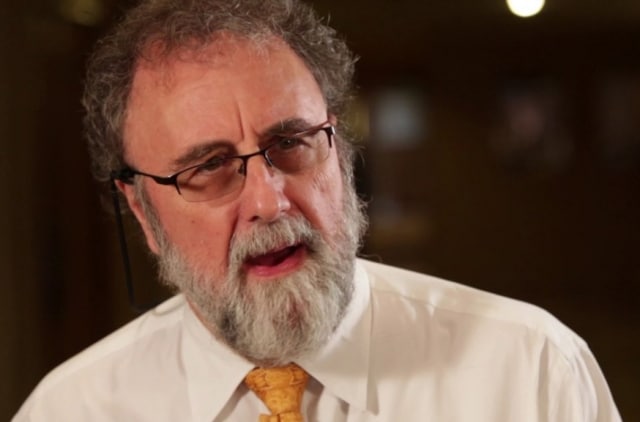Our latest DeSmog UK epic history post recalls how the IPCC COP 6 was held in the midst of the ExxonMobil funding splurge.
The Intergovernmental Panel on Climate Change (IPCC) reconvened in Bonn, Germany in 2001 for the sixth Conference of the Parties (COP).
Michael Mann’s hockey stick took centre stage of the IPCC’s third report, appearing twice in the synthesis report and another two times on the Working Group I Summary for Policymakers.
The public were already aware of the graph; President Bill Clinton had previously paid homage to the image in his final state of the union address, but Mann’s iconic image provided a rare chance for the scientific community to powerfully communicate its message to the world, and the IPCC made full use of the opportunity.
Speaking to the Naysayers
IPCC chair Professor Robert Watson (pictured) was frequently quite outspoken in public. At the time, he stated that “China has done more, in my opinion, than a country like the United States to move forward in economic development while remaining environmentally sensitive,” just days after President George W. Bush’s inauguration.
Now, with the Kyoto Protocol lost, following Bush’s swift withdrawal from the agreement, Watson’s introduction to UN delegates on 29th July 2001 unambiguously squared up to the naysayers:
“The question is not whether climate will change in response to human activities,” the bearded climatologist told the assembled delegates, “but rather how much.”
The power of the image outshone the sceptic noise; Watson held his own. As the public debate became bogged down in minutiae, he cautioned that “the only long-term solution is to decarbonise the energy system.”
Hand-Picked IPCC Chair
But, in April 2002, Watson was removed as IPCC Chair. Britain voted for Watson to stay, the US for him to leave.
Environmental groups immediately cried “Exxon!” but their accusation was not confirmed until documents were released under Freedom of Information, revealing a fax from Exxon’s bullish science chief ‘Randy Randol’ to President Bush only a week after his inauguration.
Randol asked: “Can Watson be replaced now at the request of the U.S.?” According to him, Watson had been “hand-picked by Gore” using the IPCC to further his “personal agenda”.
The fax also called for the firing of two other officials who worked on the US National Assessment on Climate Change whom Randol considered “Clinton/Gore carry-overs with aggressive agendas”: Drs Rosina Bierbaum and Mike MacCracken. The two subsequently left the panel.
In the face of these job losses, Randol was not without constructive advice.
Dean of sceptics, Dr Richard Lindzen was appointed co-lead of Working Group I, along with Dr John R. Christy, a climatologist who had been hired for a handful of Exxon- and Koch-funded think tanks, including the Competitive Enterprise Institute, Cato, Heartland and the Marshall Institute.
Next time, the DeSmog UK epic history series will look back at the fruits of ExxonMobil’s labour bloomed in US energy policy.
Photo: Future Earth via creative commons
Subscribe to our newsletter
Stay up to date with DeSmog news and alerts







